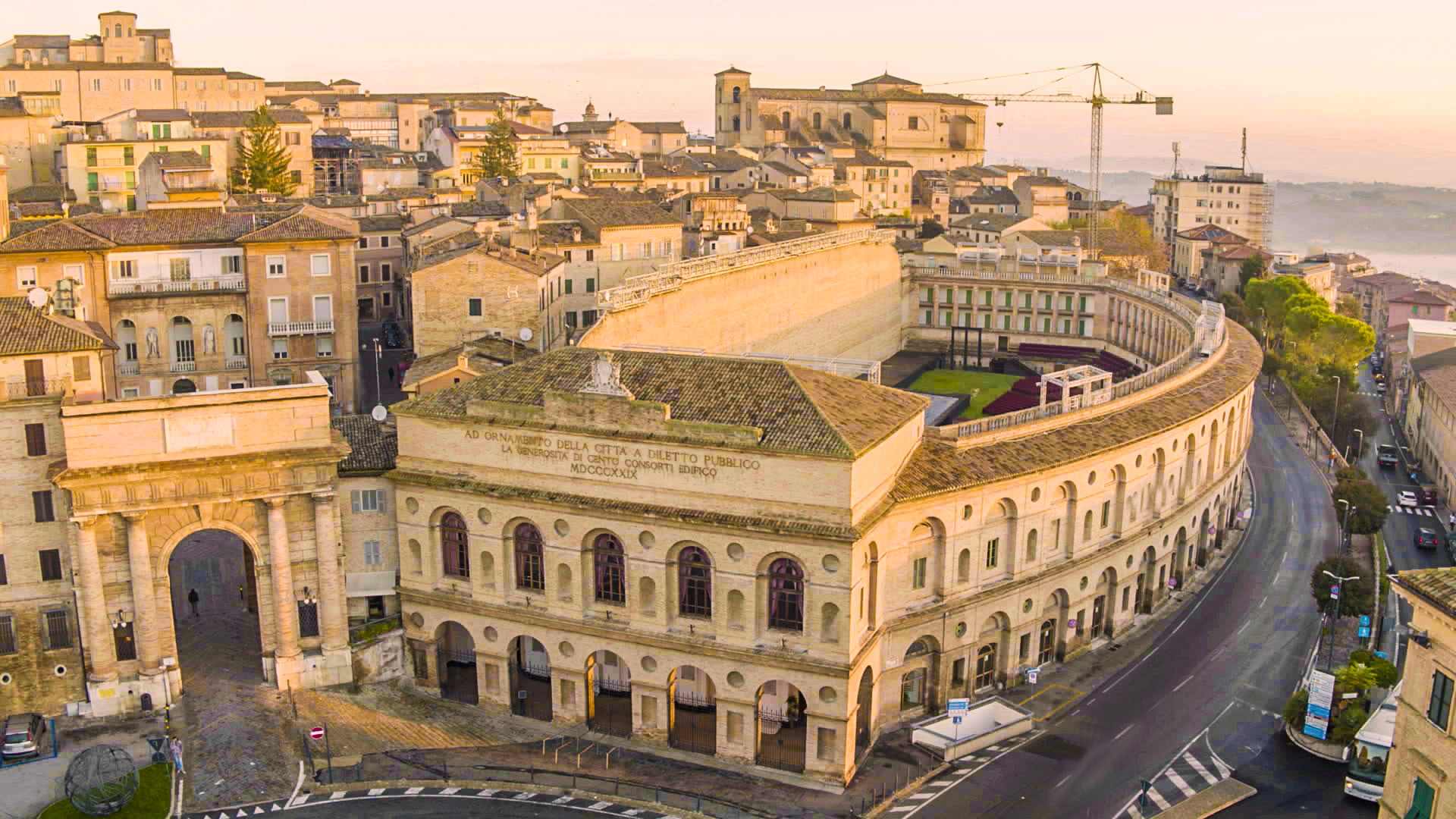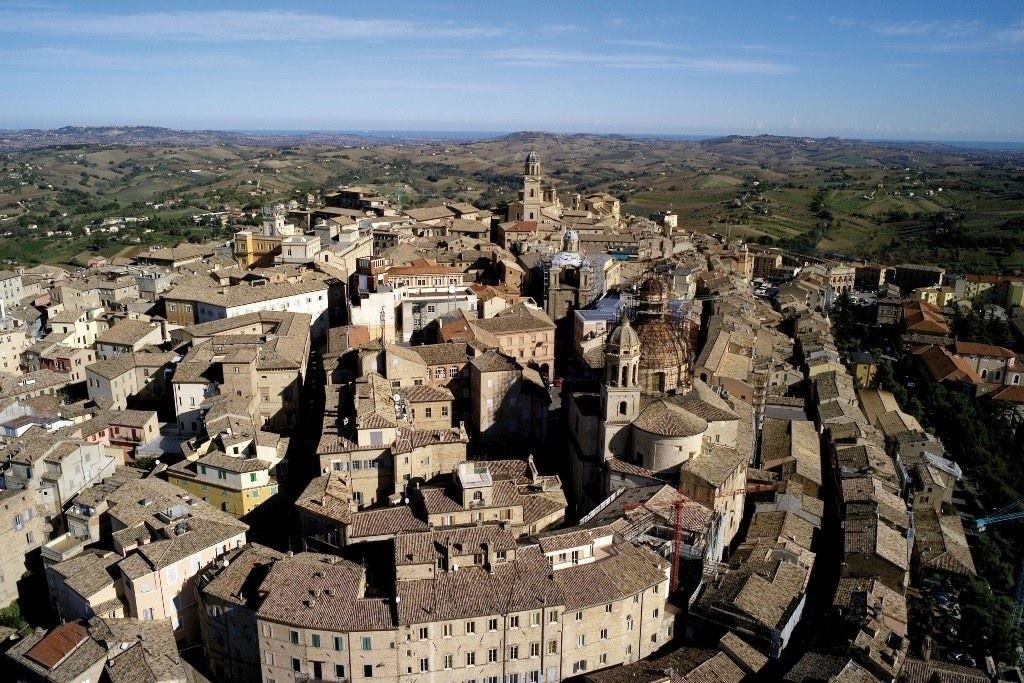


The city stands on a hill 315 meters above sea level. between the valley of the Potenza river in the north and that of the Chienti river in the south; it is located 30 km west of the Adriatic Sea and about 60 km from the Umbria-Marche Apennines. The climate of Macerata is typical of the hilly area of ​​the interior of the Marche region and has both Mediterranean and continental elements. The influence of the sea has its weight, being Macerata only 30 km from the coast, but a greater role in determining the climatic conditions of the city is to be recognized at the albeit modest altitude (315 m) and the relative proximity of the Apennine mountains.

Generally the origin of Macerata is traced back to the Roman city Helvia Recina, evolution of a pre-existing Italic city perhaps of the III century BC. inhabited by the Piceni. The remains of the 2nd century AD Roman theater they are today the most important testimony of the ancient city and testify to the prosperity of the settlement; in the 4th or 5th century the invasions of the Goths forced most of the people of Ricinesi to move on the hills where the medieval centers of Macerata and Recanati were founded. In 1320 Pope John XII's decision to grant the episcopal see to Macerata led to an increase in the population and an increase in political importance for the city thanks to loyalty to the Papal States. In the second half of the thirteenth century. almost everywhere the municipal systems were transformed into lordships and this also happened in Macerata, the exercise of power passed into the hands of a single individual representative of the bourgeois forces.

The sixteenth century was the golden age of the city, city life was characterized by a flourishing political and economic level, the works on the walls were completed and the central square was restored. The century ends with a completely transformed city both on a building level and on an urban level in the strict sense and above all the city is in clear expansion. Remember that in the cultural fervor that saw the birth of many cultural academies in Italy in this century, on July 2, 1574 Gerolamo Zoppio - professor of poetry, rhetoric and moral philosophy at the University of Macerata, known for his studies on Dante and Petrarca - founded the Accademia dei Catenati.
Macerata
Address: Viale Trieste, 24, 62100
Phone: 0733 2561
Site:
http://comune.macerata.itLocation inserted by
Culturalword Abco